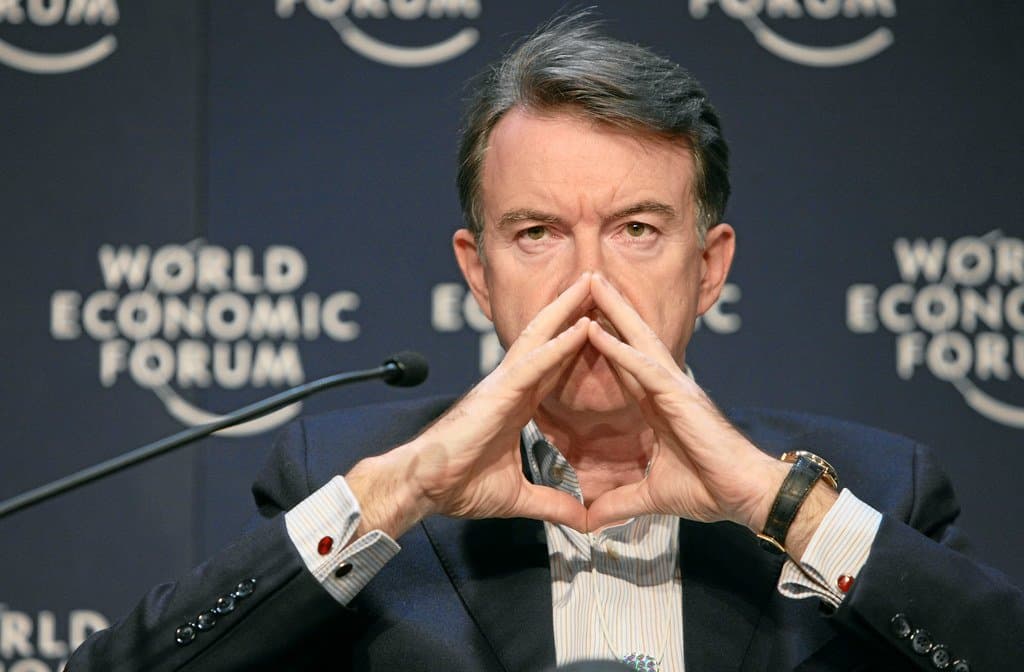High Court Debt Battle Highlights Mandelson Ally’s Financial Struggles
Explore the unfolding High Court dispute involving a close Peter Mandelson ally, revealing complex fintech debts, political donations, and the challenges of transparency in British finance networks.

Key Takeaways
- A Mandelson ally faces High Court debt claims from a US investor.
- The Bank of London fintech raised $90m but struggled financially.
- Statutory demands can precede bankruptcy if debts remain unpaid.
- Political donations over £500,000 link the ally to Labour figures.
- Transparency and accountability remain central in political-financial ties.

In the tangled web of British politics and finance, a close ally of Peter Mandelson is now fighting a High Court battle over alleged debts. Anthony Watson, founder of fintech challenger The Bank of London, faces claims from US investor ForgeLight, spotlighting the financial turbulence behind a once high-flying startup. This legal drama unfolds amid mounting losses, political donations exceeding £500,000, and a fintech valued at $1.1 billion that now seeks urgent capital. Here’s how this story reveals the complex dance between political influence, fintech ambition, and financial accountability.
Unpacking The High Court Debt Battle
Imagine a courtroom where fintech dreams clash with cold, hard debts. That’s the scene unfolding as Anthony Watson, founder of The Bank of London, faces a statutory demand from US investor ForgeLight. This demand isn’t just a polite request—it’s a legal spotlight on unpaid sums that could push Watson toward bankruptcy. Statutory demands act like financial red flags, signaling serious trouble ahead if debts aren’t cleared. ForgeLight, a major backer since the bank’s $90 million funding round in 2021, is now at the center of this dispute. The exact amount claimed remains under wraps, but the stakes are high given the investor’s substantial involvement. This legal battle reveals how fintech’s fast-paced world can collide with traditional financial pressures, reminding us that even the most promising ventures aren’t immune to fiscal storms.
The Bank of London’s Rise and Fall
The Bank of London launched in 2021 with a bang, valued at a staggering $1.1 billion. Anthony Watson, a former Nike and Barclays executive, steered this challenger bank with ambitions to disrupt the financial sector. The fintech attracted heavyweight names like Lord Mandelson and Harvey Schwartz to its board, signaling serious intent. Yet, behind the scenes, losses piled up. Early 2024 accounts revealed an urgent need for fresh capital, a red flag for any startup. Watson’s departure in September 2024 was swiftly followed by a surprise winding-up petition from HMRC, shaking the company’s foundation. Though the petition was later withdrawn due to an administrative error, the episode exposed vulnerabilities beneath the fintech’s glossy surface. The Bank of London’s story is a cautionary tale about the volatility of fintech ventures and the fine line between rapid growth and financial fragility.
Political Donations and Financial Influence
Anthony Watson isn’t just a fintech founder; he’s a major Labour Party donor, having contributed over £500,000 to various MPs. His generosity extends to figures like Peter Kyle, Wes Streeting, and Yvette Cooper, weaving a web of political connections. Donations like these often spark debates about influence and transparency. Watson’s support for LGBT rights and close ties to MPs such as Dawn Butler add layers to his public persona. Yet, when financial disputes arise, these political links invite scrutiny. The intersection of hefty donations and business struggles raises questions about how political patronage and financial dealings intertwine. This case reminds us that behind political generosity can lie complex financial narratives, challenging assumptions about the purity of political funding.
Transparency Challenges in Political Finance
Peter Mandelson’s network has long been shadowed by financial controversies, from undisclosed loans to opaque business dealings. The current High Court case involving his ally echoes past scandals, like the Geoffrey Robinson loan affair that forced Mandelson’s resignation. These episodes highlight persistent challenges in separating personal finance from political life. Transparency isn’t just a buzzword—it’s the bedrock of public trust. Yet, as this fintech saga shows, financial opacity still lurks in influential circles. The courts stepping in signals a shift from political cover-ups to legal accountability. For the public, it’s a reminder that financial dealings behind closed doors can have wide-reaching implications, shaking confidence in political and business elites alike.
Lessons from the Mandelson Ally Debt Dispute
What can we learn from this High Court drama? First, even well-connected figures aren’t immune to financial scrutiny. The fintech sector’s allure of rapid success must be balanced with solid financial discipline. Political donations, while legitimate, invite extra attention when business troubles surface. The statutory demand against Watson underscores the seriousness of unpaid debts and the legal consequences that follow. For investors and entrepreneurs, it’s a stark reminder: transparency and accountability aren’t optional extras—they’re survival tools. This case also challenges the myth that political ties guarantee immunity from financial fallout. Instead, it shows that courts and public opinion increasingly demand clarity and responsibility, no matter who’s involved.
Long Story Short
This High Court dispute is more than a legal tussle; it’s a vivid reminder that financial transparency and responsibility remain elusive in some corners of British business and politics. Anthony Watson’s journey from fintech CEO to defendant in a debt battle underscores the risks of rapid growth without stable footing. For investors, political donors, and observers alike, the case highlights the importance of clear financial stewardship and the courts’ role in enforcing it. As the dust settles, the intertwining of political ties and business debts will continue to challenge perceptions of trust and accountability in the UK’s financial landscape.